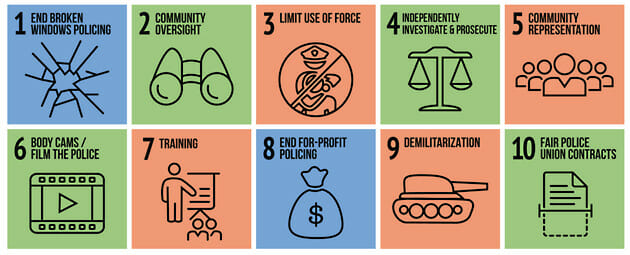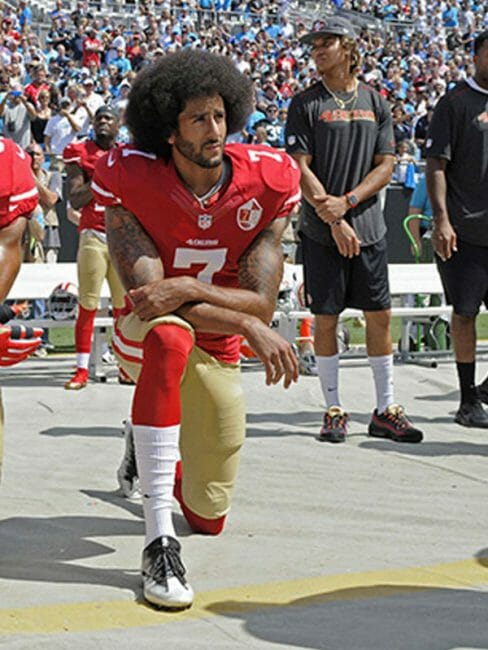The Folks Cheering Charlie Kirk's Murder Are Awful, But...
I would describe myself as an intellectual and a pacifist. Not a pacifist in the sense that I would accept any outrage to avoid violence, but a pacifist in the sense that violence is way down my list of solution approaches to any problem. My first, second, and third options are always to try to have a reasoned discussion.
So I was particularly horrified by the news of the murder of Charlie Kirk. While I frequently disagreed with his positions, and do not share his religious zeal, he was doing exactly what I would have liked to do and what I wish everyone else did – engage in reasoned debate with those who disagree. He was a model for non-violent engagement with one’s opponents and to be killed while engaging in such debate is a terrible irony.
I can’t find the post but a while back I wrote about what I would do as a college president to combat cancel culture and the toxic intellectual environment on many campuses. My lead recommendation was to ban the heckler's veto but require that every campus speaker make themselves available for at least an hour of open discussion and debate after any presentation.
As to the motives of the killer in this case, I am not sure I really give a sh*t. It is an exceedingly popular but absurd game to try to count coup on one’s political opponents based on the actions of a single fringe participant in some of their beliefs. In my lifetime pretty much every major public assassination of this type has been by someone who turned out to be mentally unbalanced or a total loony. I am not sure how much value there is to parsing the motivations of the mentally ill – I remember all the attempts to pin the actions of the nut who shot Gabby Giffords on Sarah Palin, which turned out to be 100% a political points-scoring exercise and 0% useful in understanding anything useful.
What has worried me more than the confused politics of mentally ill kills has been watching the public reaction to Luigi Mangioni's cold-blooded murder of Brian Thompson. Instead of treating him like Charles Manson, we instead see young progressive women treating him like a Teen Beat cover boy. People have contributed over $1 million to his defense fund and the “Luigi Mangione Access to Healthcare Act" is a real ballot initiative gathering signatures in California at this moment – presumably the Initiative’s promoters felt Mangione’s name had positive marketing power in the California progressive community.
Equally, anyone should be horrified by folks going online to celebrate Charlie Kirk's murder. Many examples of such social media celebrations have been dredged up and archived by Conservative commentators. They are all awful, though it is hard to determine just how representative they are of general feelings on the Left.
There is a funny dynamic in which both team Red and team Blue believe their side to be well-behaved while the other side is steeped in violent rhetoric. There is a reason for this, as alluded to earlier: Opinion-makers from both teams love to explore the other team's fringe supporters to look for craziness, and inevitably find it. They amplify those crazy opposing fringe views to their own supporters, building the impression among their supporters that the other side is violent and dangerous. But since most folks don't read across the red-blue line, they don't see such accusations of their own side. In fact they are confused if you mention to them that their side has violent rhetoric, because they honestly may never have seen it in the mainstream sources they read.
I once had a feature on this blog where I would take advantage of being one of the few to read both sides of the aisle to post interesting juxtapositions from Left and Right. One of the most common I saw (and still see) is the statement "our side loses too much because we are too genteel, we need to start being more bare-knuckled like the other guys." I once saw this on the same day at Conservative Powerline and from Progressive Kevin Drum.
A typical formulation of this you will see a lot is "we need to start playing by their rules" or "they made the new rules so they are going to have to live with them now" or even to an extent the "FAFO" mantra used by Trump supporters nowadays. At this moment the Left is blaming Charlie Kirk's death on the Right's violent rhetoric and is saying the Right needs to have a timeout while the Right responds to his death by urging its supporters that it is perhaps time to stop being so genteel and passive. Both see Charlie Kirk's death through a lens where their side is well-behaved and the other is toxic and violent.
All of this is a (typically) long-winded intro to what I actually was going to write about, which is the people getting fired for posts on social media celebrating Charlie Kirk's death. In particular, a lot of these seem to be public school teachers and public university professors. And I can understand the concern one would have if their kid had a teacher who in their private hours was celebrating violence on social media.
But here is the "but" from the post title. If this stuff is actually happening in the classroom, then these terminations may stick. But otherwise, if they were terminated for private speech in their free time, it is very likely administrative or legal appeals will result in these teachers being back at work very soon. Public school teachers are public employees, no different than clerks in the DMV. And it is highly unlikely that they can be terminated over their private protected speech. Celebrating a death is protected speech. Even saying "such and such public figure should die next" is protected under many circumstances. Of course this is going to drive the Right crazy when "liberal judges" send these folks back to work, but it is going to happen.**
As ugly as this stuff is, it is also depressing to see the Right engage in cancel culture after so many years of being its victim. Yes, I know folks like Amy Wax and other educators with libertarian or conservative opinions have had to fight suspensions and terminations over their speech. And some of these statements are really awful, but a gay parent or student might argue that anti-gay statements by a teacher are equally awful. The acceptability of speech is often in the eye of the beholder and thus the very reason why its legality needs to be absolute.
I am not a Conservative but I am an opponent of much of the Progressive / woke / Marxist dogma and thus make common cause with Conservatives on some issues. But I find myself drifting apart from Conservatives of late on tactics, even on issues where we agree. It is impossible to call a trend after just a few days, but a LOT of Conservatives are responding to the Charlie Kirk murder by saying its time to stop being so genteel and to play by what they perceive as the Left's rules, Folks like myself who respond to escalation by trying to de-escalate are treated as losers, rubes, patsies, etc.
Well, I hate the totalitarian Marxist woke culture on the Progressive Left. And I am coming to hate the Conservative FAFO response (where they have adopted a term from drunken bar fights). I am determined to find a reasoned way out. Which, by the way, is exactly what I think Charlie Kirk was trying to do. Perhaps instead of FAFO, Conservatives organized an initiative where many of them went to campus and propped up Charlie's "prove me wrong" sign.
I would find it horrible if we were to further escalate the most toxic elements of the current political culture as the primary memorial to a man who tried as hard as anyone to de-escalate them. De-escalating does not mean one is giving up advocating for you are passionate about, it means trying to get there in a reasoned, collegial manner.
In this way, I'm with Charlie Kirk.
** Postscript: Don't like having crazy progressive idiots for teachers of your children? Instead of working to get them fired -- there are too many! -- advocate for school choice. I don't think there is a bigger problem in this country than the state of the K-12 education system. It is the meta-problem from which many, many others flow. We have got to stop giving the same people who run the DMV and the Post Office a virtual monopoly on our kid's education. I have had the resources to send my kids to private school -- and I have seen how much better it can be. My kids in K-5, for example, went to a private school with very high standards that taught math and reading at a high level and cost less per year than the Phoenix public school system pays per pupil of the same age.
Earlier this year I wrote in the context of a post about racism:
I do think the system goes wrong for blacks but it is not in any arena controlled by the proud boys. And I have a strong opinion on where that system failure lies: K through 12 education, and probably even more specifically K-5 education. We have affirmative action in the workplace for blacks. Why? Because there do not seem to be enough prepared candidates so we give less-prepared candidates a leg up. Before that we have affirmative action in college for blacks. Why? Because there do not seem to be enough prepared candidates so we give less-prepared candidates a leg up. We keep changing the SAT test. Why? Because blacks historically struggle to score as well as whites and other races on the test. We keep changing (lowering) high school graduation requirements. Why? Because to many black children fail to graduate with the higher standards.
All of this stuff are after-the-fact attempted work-arounds that avoid fixing the real problem: K-12 education is totally failing black kids. Any root cause failure analysis would get to this conclusion. You want to say that systemic racism exists? Well here is the place where the system is totally failing one race. If I were more of an expert, I could probably tell you which grade it is where things go off the rails but my guess is that it is an early grade where reading and basic math are not getting taught. And it has little to do with money -- school districts like East St Louis have some of the highest per-student spending numbers in the country but their kids graduate completely unprepared for modern life.
If I were the biggest racist in history and wanted to come up with a Dr Evil scheme to destroy blacks in America, I could not come up with a better plan than the K-12 education system, particularly in many large cities.





